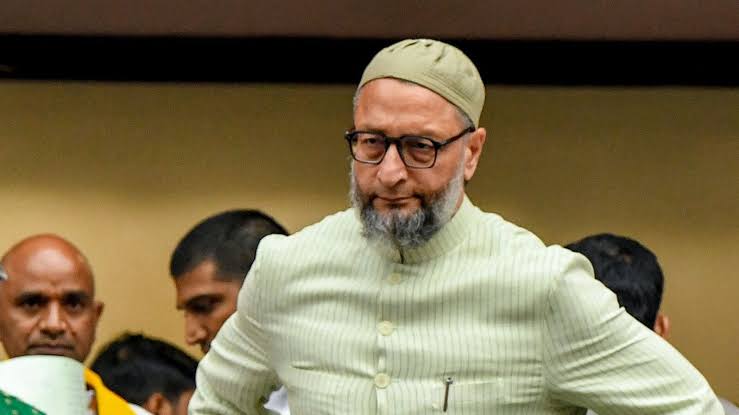– By Amit Bhatia
In a startling admission that has caught the attention of both the public and policymakers, AIMIM leader Asaduddin Owaisi revealed a significant issue regarding the documentation—or the lack thereof—of Waqf properties, shedding light on a controversial practice known as “Waqf by User.” In a Video clip, Viral over Social Media, Owaisi mentioned that in Uttar Pradesh, out of 1.21 lakh Waqf properties, 1.12 lakh reportedly do not have valid ownership documents.
This practice has reportedly allowed the Waqf Board to lay claim to vast tracts of land across India, often without clear legal documentation, leading to numerous disputes and allegations of land grabbing.
The concept of “Waqf by User” pertains to land or property used for religious or charitable purposes over an extended period, which can be declared as Waqf property even in the absence of explicit endowment by the owner. This method, while rooted in historical practices where land was dedicated for religious use without formal paperwork, has in modern times become a contentious tool for acquiring property.
Owaisi’s confession has reignited debates around the Waqf (Amendment) Bill, 2024, which aims to eliminate the recognition of “Waqf by User.” Muslim side argue this move could potentially delegitimize numerous properties currently under Waqf control, affecting the Muslim community’s welfare projects funded by these properties’ revenue. However, it’s a necessary step to curb the unchecked expansion of Waqf properties, often at the expense of rightful landowners, mostly Non Muslims who have nothing to do with Waqf or Islam and other government bodies.
The issue came to a head during a recent Joint Committee of Parliament meeting where several government entities accused Waqf boards of claiming ownership over their properties. The Archaeological Survey of India (ASI), for instance, listed several protected monuments that Waqf boards had claimed, highlighting the conflict between heritage conservation and Waqf assertions.
The implications of Owaisi’s statement are manifold:
- Legal Challenges: Properties declared as Waqf through usage might face legal battles if the new bill challenges their status. This could lead to a surge in litigation, with both sides, Waqf boards and opposing claimants, bracing for a long legal fight.
- Administrative Overhaul: The government’s push towards streamlining Waqf property management involves introducing more stringent documentation requirements, potentially reducing the scope for future claims based on usage alone.
- Public Perception and Policy: Owaisi’s revelation might sway public opinion towards stricter control over Waqf property declarations, influencing policy-making to favor transparency and legal clarity over traditional practices.
- Community Impact: The Muslim community, which benefits from the welfare activities funded by Waqf properties, might see these activities curtailed if properties are lost or their incomes reduced due to legal disputes.
This situation underscores a broader narrative of land rights, historical usage versus legal ownership, and the challenges of modern governance over properties with religious significance. As the Waqf (Amendment) Bill, 2024, progresses through legislative channels, all eyes will be on how India balances respect for religious endowments with the need for clear property rights in an increasingly documented world.



